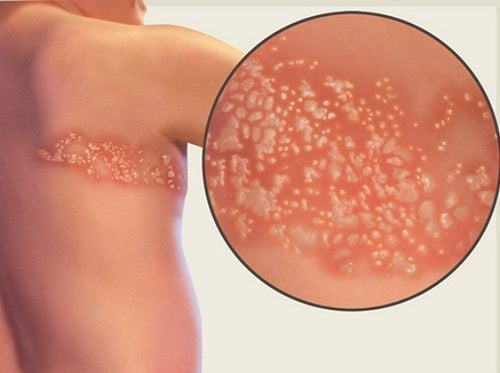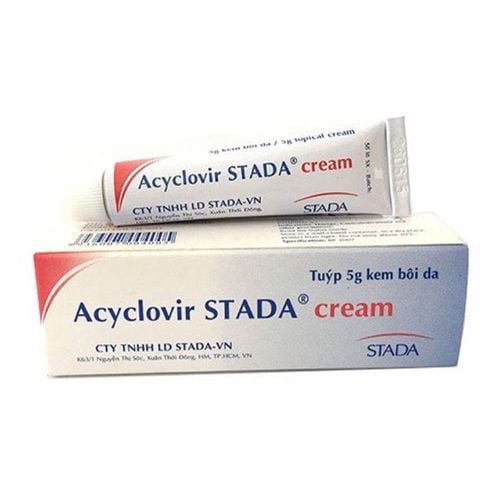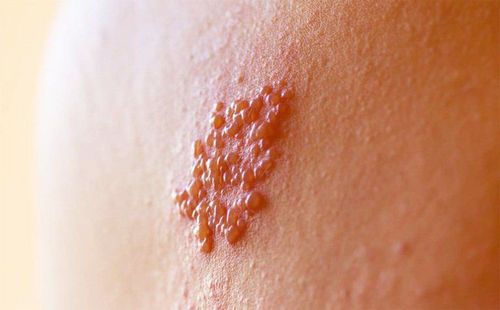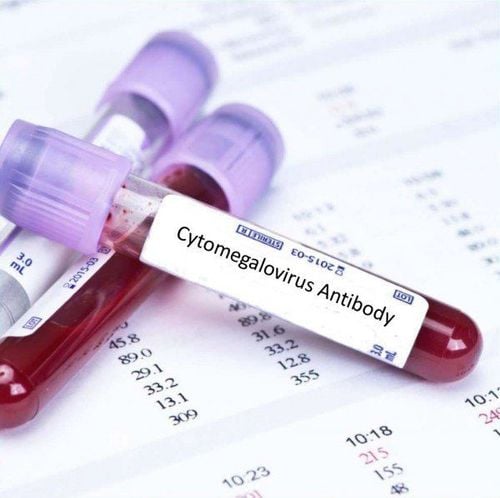This is an automatically translated article.
Cytomegalovirus infection is one of the most common congenital viral infections causing intrauterine growth retardation, premature birth, microcephaly, opticitis, pneumonia, and CMV hepatitis in newborns, causing jaundice and bleeding. subcutaneous, hepatosplenomegaly. Diagnosis is based on viral culture or PCR, supportive treatment is the main method, can limit hearing loss by intravenous infusion of ganciclovir.
1. What is cytomegalovirus?
Cytomegalovirus (CMV) is a virus belonging to the herpes virus family capable of causing infections such as chickenpox, shingles, ... The virus can infect people of many ages, most people infected with the virus are infected. Immunocompromised such as infants, young children, pregnant women. The causes of CMV virus transmission are:
Poor personal and community hygiene Contact with body fluids of an infected person (blood, saliva, urine, milk, semen) and cross-transmission when the mother is infected with CMV Once CMV is infected in the body, it usually lasts a lifetime, it is difficult to detect because the symptoms are not clear. However, when the immune system is weakened, it is also the time when CMV reactivates, causing disease in the body.
2. Symptoms of hepatitis CMV in children:
Up to 10% of infants with congenital CMV infection have symptoms at birth. Manifestations include:
Premature birth Jaundice Hemorrhage under the skin Hepatosplenomegaly Hepatitis Pneumonia Hearing loss Newborns infected with CMV at birth or after birth may have sepsis-like syndromes, pneumonia, hepatosplenomegaly enlargement, hepatitis (leading to liver failure), bleeding, thrombocytopenia, and atypical lymphocytosis. However, infants infected with CMV from their mothers through breast milk have a lower risk of severe disease and long-term sequelae. In addition, children infected with cytomegalovirus at school age and puberty will have CMV hepatitis symptoms such as fatigue, muscle aches, headache, fever, liver and spleen enlargement, but symptoms are usually mild and only last from 2-3 weeks.
3. Diagnosis and treatment of CMV hepatitis in young children
Diagnosis of CMV hepatitis in young children can be done through testing from samples of throat fluid, urine, blood, tissue or other body fluids. No specific treatment is currently recommended for healthy children with CMV infection.
In infants, young children with immune disorders such as AIDS, CMV infection can be life-threatening. These people can be treated with intravenous antiviral drugs. Newborns often need to be hospitalized because antiretroviral drugs have the potential to cause serious side effects and therefore require close monitoring.
Infants with symptomatic CMV hepatitis are given antiviral drugs. Oral valganciclovir 16 mg/kg x 6 months to reduce viral shedding in neonates with congenital CMV and moderately improve hearing function and neurodevelopmental outcomes at 12 and 24 months of age.
4. How to prevent hepatitis CMV in children?
Pregnant women who are not immune should avoid contact with sources of CMV, always wash hands thoroughly after contact with urine and oral or respiratory secretions of children Avoid perinatal CMV related to blood transfusion by transfusion of premature infants with CMV-negative blood or leukocyte-cleared blood products Lactating women with CMV infection should not discontinue breastfeeding because of the many benefits from breast milk more valuable than the risk of passing CMV to the baby Require the child and those who come in contact with the child to wash their hands frequently Do not let the child share items with others and avoid contact with the infected person Vaccine Congenital CMV prevention has not yet been developed. Pediatrics department at Vinmec is one of the few multi-specialty hospitals with a full range of doctors specializing in neurology, cardiology, gastroenterology, nutrition, psychology, endocrinology, etc. Hepatobiliary system helps to quickly and promptly handle diseases when detecting diseases during examination. As a key area of Vinmec Medical system, Pediatrics Department always brings satisfaction to customers and is highly appreciated by industry experts with:
Gathering a team of leading pediatricians: including leading experts, with high professional qualifications (professors, associate professors, doctorates, masters), experienced, worked at major hospitals such as Bach Mai, 108.. Doctors All of them are well-trained, professional, have a mind - range, and are knowledgeable about young psychology. In addition to domestic pediatric specialists, the Department of Pediatrics also has the participation of foreign experts (Japan, Singapore, Australia, USA) who are always pioneers in applying the latest and most effective treatment regimens. . Comprehensive services: In the field of Pediatrics, Vinmec provides a series of continuous medical examination and treatment services from Newborn to Pediatric and Vaccine,... according to international standards to help parents take care of their baby's health from birth to childhood. from birth to adulthood Advanced techniques: Vinmec has successfully deployed many specialized techniques to make the treatment of difficult diseases in Pediatrics more effective: neurosurgery - craniofacial surgery, stem cell transplantation. blood in cancer treatment. Professional care: In addition to understanding children's psychology, Vinmec also pays special attention to the children's play space, helping them to play comfortably and get used to the hospital's environment, cooperate in treatment, improve the efficiency of medical treatment.
Please dial HOTLINE for more information or register for an appointment HERE. Download MyVinmec app to make appointments faster and to manage your bookings easily.













